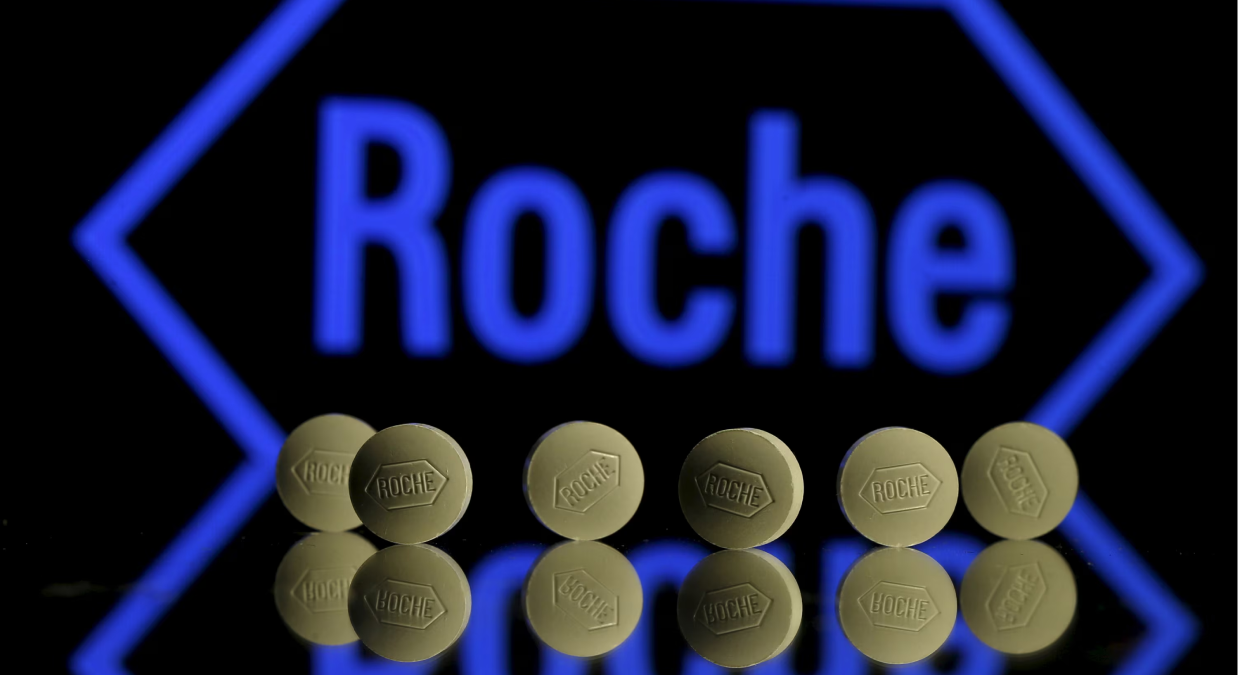Roche's Columvi Combo Shows 41% Survival Benefit In Relapsed DLBCL, FDA Advisory Committee Requests More U.S. Specific Data
FDA panel reviews Roche’s Columvi® + GemOx for DLBCL; final decision expected by July 20, 2025.
Breaking News
May 21, 2025
Simantini Singh Deo

Roche announced that the U.S. Food and Drug Administration’s (FDA) Oncologic Drugs Advisory Committee (ODAC) met to review the supplemental Biologics License Application (sBLA) for Columvi® (glofitamab) when used in combination with gemcitabine and oxaliplatin (GemOx). The proposed use is for treating adults with relapsed or refractory diffuse large B-cell lymphoma (DLBCL) who are not eligible for autologous stem cell transplant (ASCT).
The discussion centered on the relevance of the Phase III STARGLO study results to patients in the U.S. The Committee noted that more data may be needed, although Roche emphasized that the patient characteristics from the STARGLO trial are representative of the U.S. population. The study enrolled 274 participants at 62 sites in 13 countries, including the U.S., with over half of participants coming from outside Asia. Roche also highlighted that DLBCL is managed similarly across regions, and biological or regional differences are not expected to affect treatment outcomes.
Results from STARGLO showed that the Columvi and GemOx combination significantly improved survival compared to rituximab plus GemOx (R-GemOx). Patients receiving the Columvi combination had a 41% lower risk of death and a 63% lower risk of disease progression or death. Median overall survival was 25.5 months for the Columvi group, compared to 12.9 months for those on R-GemOx. The safety profile of the combination was consistent with the known effects of the individual drugs, though more adverse events were reported in the Columvi arm, including cytokine release syndrome, which was generally mild and mostly occurred during the first treatment cycle.
Levi Garraway, MD, PhD, Roche’s Chief Medical Officer and Head of Global Product Development, stated, “Columvi in combination with GemOx demonstrated a 41% reduction in risk of death in a phase III, randomised, multiregional clinical trial, supporting its recent approval by the European Commission and inclusion in the US National Comprehensive Cancer Network treatment guidelines as a category 1 preferred regimen. We believe the STARGLO results are applicable to US patients, with the global study population closely mirroring the real-world clinical profile of DLBCL patients in the US, and we will continue working with the FDA on the regulatory path forward.”
Krish Patel, MD, Director of Lymphoma Research, Sarah Cannon Research Institute, mentioned, “Many of the patients with DLBCL who I see in my clinic are similar to the patients reflected in this study, making the glofitamab-GemOx regimen an important potential treatment option. These patients need more effective, readily available treatment options and the compelling results from STARGLO deliver on this need.”
The STARGLO study supports the potential for Columvi in combination with GemOx to offer a meaningful treatment option for patients with limited alternatives. About 75% of patients with relapsed or refractory DLBCL in the U.S. are not suitable for stem cell transplant or advanced therapies, making accessible options particularly important. The Columvi and GemOx combination has already been approved in more than 30 countries, including across the European Union, and was recently added as a preferred treatment in the National Comprehensive Cancer Network (NCCN) Clinical Practice Guidelines for second-line treatment in transplant-ineligible patients.
Columvi is also approved as a monotherapy in more than 60 countries for patients who have received at least two prior lines of treatment. The STARGLO study is intended to support the transition of Columvi’s current accelerated approval in the U.S. to full approval. The ODAC offers independent expert opinions to the FDA, but its recommendations are not binding. The FDA's decision on this application is expected by July 20, 2025. Two-year follow-up data from the STARGLO study will be presented at the American Society of Clinical Oncology (ASCO) Annual Meeting taking place from May 30 to June 3, 2025.
